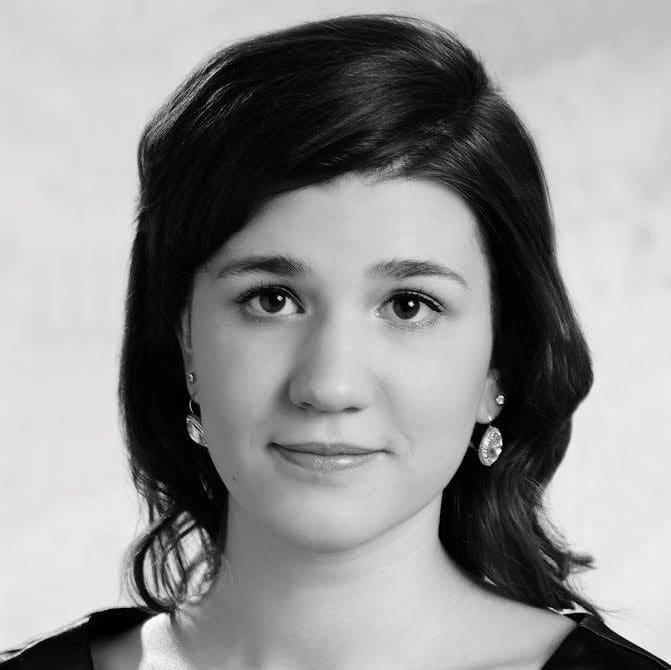



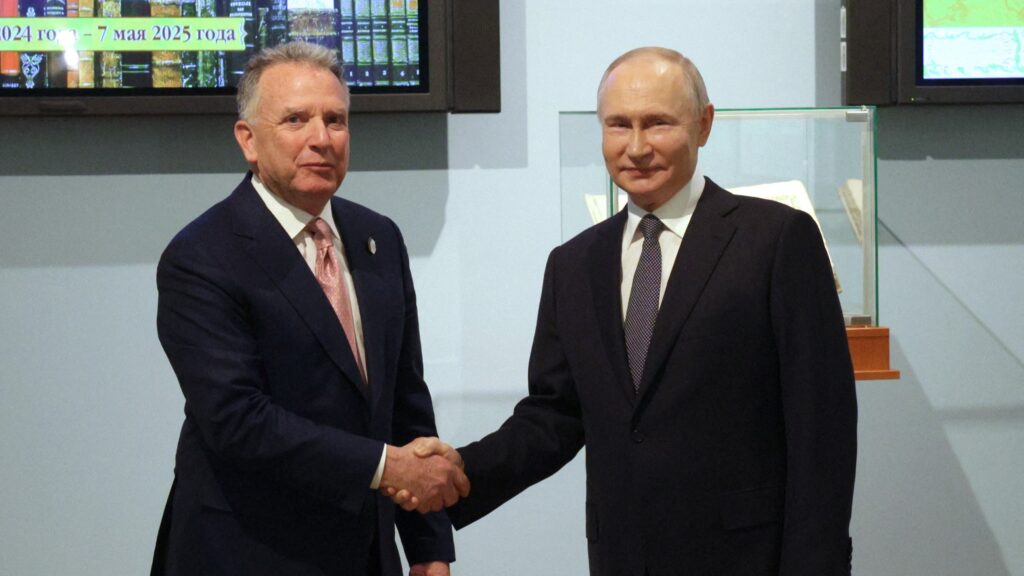
‘While already several rounds of negotiations took place between Washington, Kyiv and Moscow, no agreement has yet been reached on a ceasefire. With the Trump administration’s frustration growing with Moscow, Zelenskyy also accused the Kremlin of prolonging the war.’

‘Many accused the court’s ruling of depriving the electorate the chance of deciding who is fit to hold political office in France. Rather than disqualifying Le Pen from the presidential race, it could have been decided to merely fine the party for the misappropriated funds. The ban on running for office is widely seen as a disproportionate intervention into the political affairs of the country…’

‘A right-wing candidate who was allowed to enter the race is George Simion from the Alliance for the Union of Romanians (AUR)…While back in November polls failed to predict Georgescu’s victory, currently George Simion seems to be among the electorate’s favourites for the presidential role.’
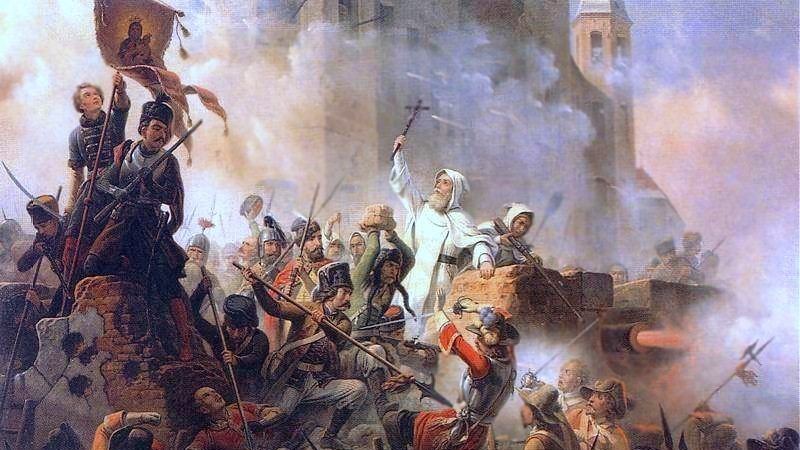
‘Along with its growing prominence as a religious place, Jasna Góra also became known as a site of Poland’s struggle for its freedom and sovereignty. As Poland was fighting for its independence on multiple fronts, the monastery was one of few fortresses that stood against the Swedish invasion in the 17th century.’
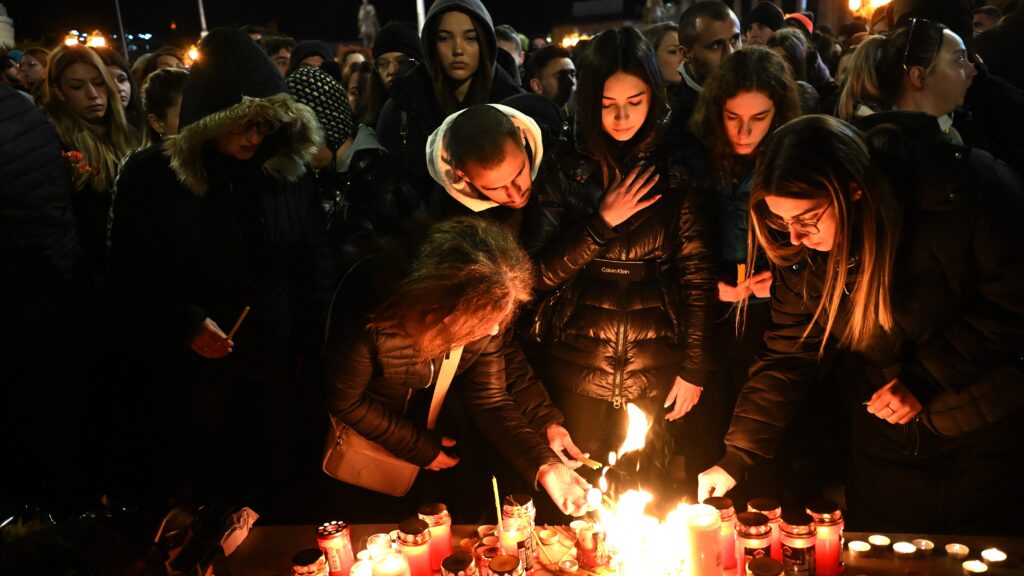
Last weekend the world was shocked by news of a fire that took the lives of 59 people in a North Macedonian nightclub and injured an additional 156. The blaze broke out after 2am at Club Pulse, most probably due to the pyrotechnics used during a concert. Arguably the nightclub fire is the worst tragedy that has happened in North Macedonia in recent memory.
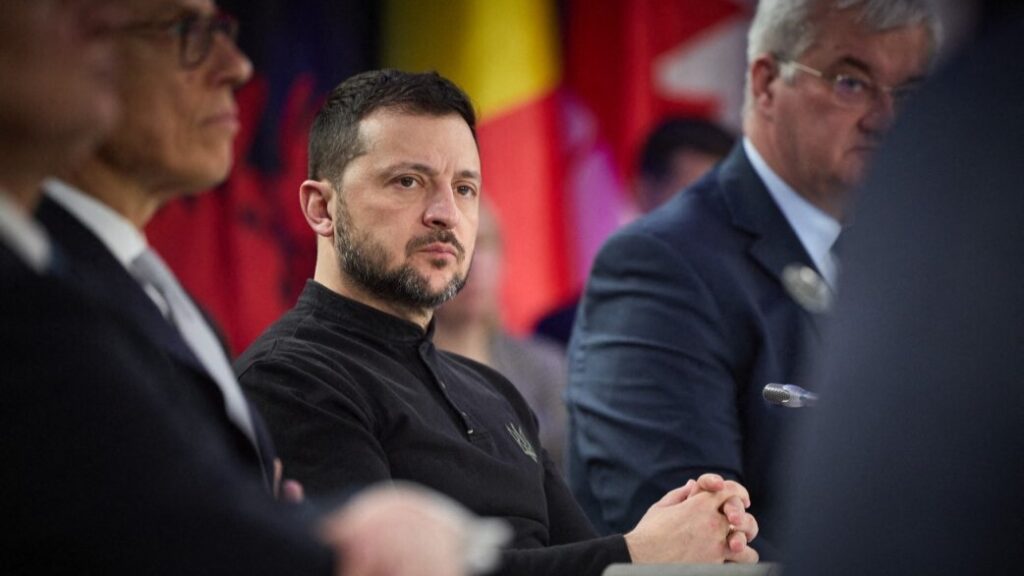
‘Now, that the new US administration is very clearly pursuing a different policy on Ukraine compared to its predecessor’s, Europe’s attitude should adapt too. The fact that European leaders’ messages after Friday do not signal any change in the EU’s policy demonstrates that Europe is unable or unwilling to realize that…the only way forward is to end the war on the Eastern front as soon as possible.’

‘…an attempt to invest into alternative suppliers…can be understood as an effort to diversify supply chains amid rising competition between Washington and Beijing. The United State’s quest to secure its supply of critical minerals is especially timely given the fact that a couple of months ago, in December 2024 China imposed restrictions on the export of several minerals and metals to the US.’
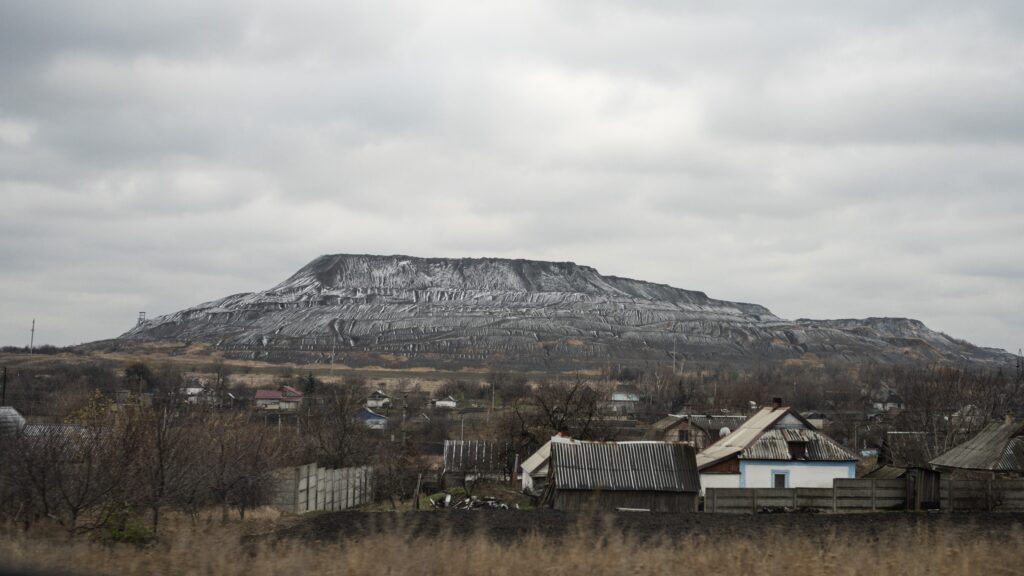
‘As of now most critical minerals originate from China, which controls about one third of the world’s total rare earth metal reserves. The attempt to invest into the Ukrainian mine industry is widely seen as an effort to diversify supply chains amid rising competition between Washington and Beijing.’
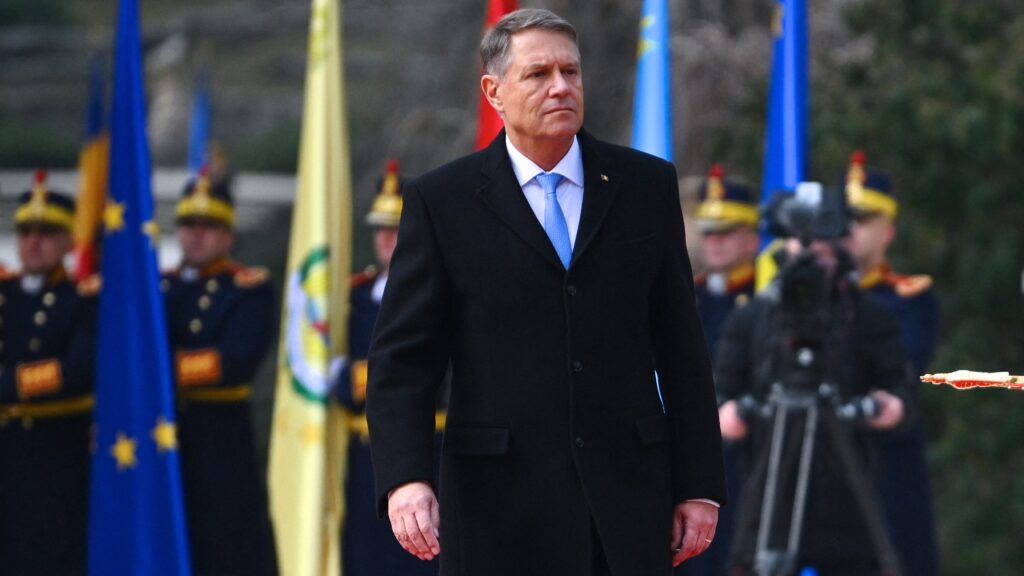
Earlier this week Romanian President Klaus Iohannis resigned from his post following mounting pressure from the parliament pursuing an impeachment process against him. The controversy was sparked by the Romanian constitutional court’s decision last year to cancel the Romanian presidential elections and—as no new president was elected—lengthen Klaus Iohannis’ term in office.
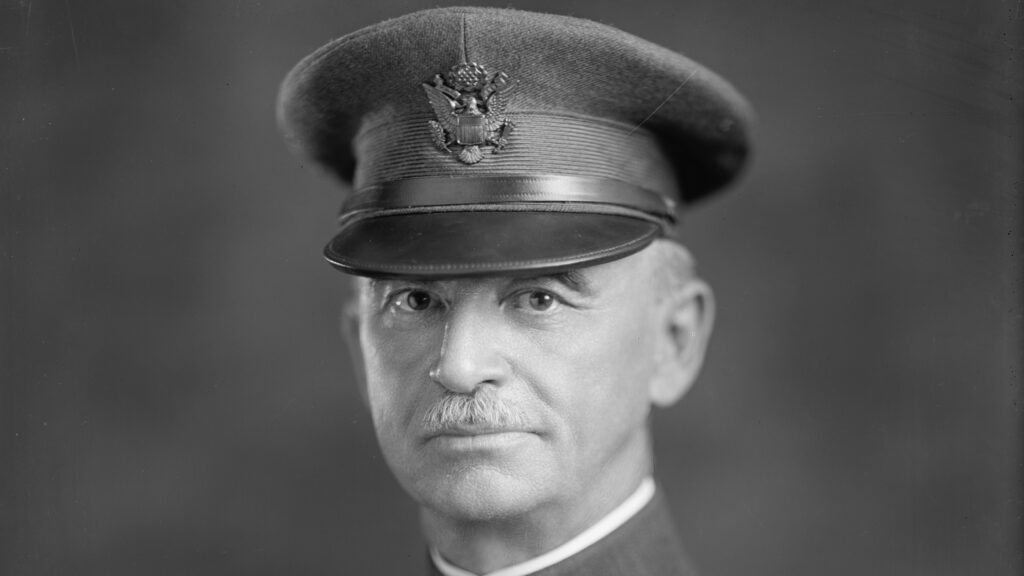
Albeit much smaller than the one dedicated to the Soviet Red Army, and much more hidden than Ronald Reagan’s statue, Liberty Square is also home to the bronze sculpture of a little known but extraordinary figure: US General Harry Hill Bandholtz.

Over the past three years Milanović earned himself the reputation of being ‘the Croatian Donald Trump’. He became internationally well-known for his opposition to and critique of the West’s military support to Kyiv. The re-elected president condemned Russia’s invasion of Ukraine, while he was also a vocal critic of Europe’s attitude towards the conflict.
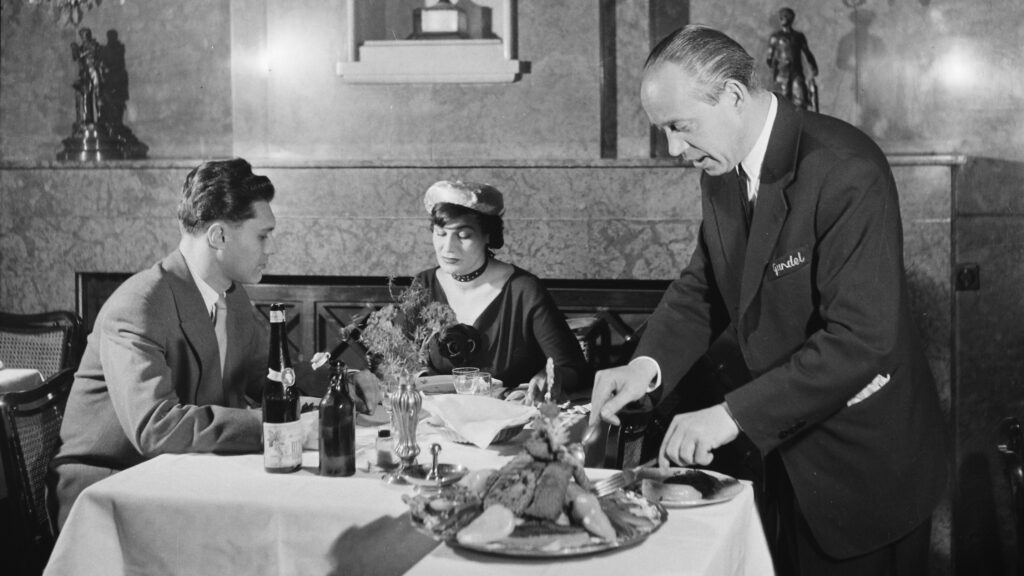
The restaurant, established in the 1860s, was taken over In 1910 by János Gundel, a German immigrant from Bavaria, who gave the restaurant the name it is known by today.
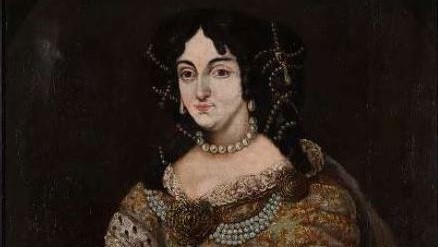
Ilona Zrínyi, a noblewoman hailing from a Croatian–Hungarian aristocratic family, is one of the most defining female figures in Hungarian history. An uncompromising patriot and fearless leader, the Countess defended the castle of Munkács (Mukachevo) for three years against the Habsburg forces. Although she died in exile in Turkey in 1703, she was reburied alongside her freedom fighter son, Ferenc II Rákóczi in Kassa (Košice, Slovakia) in 1906.
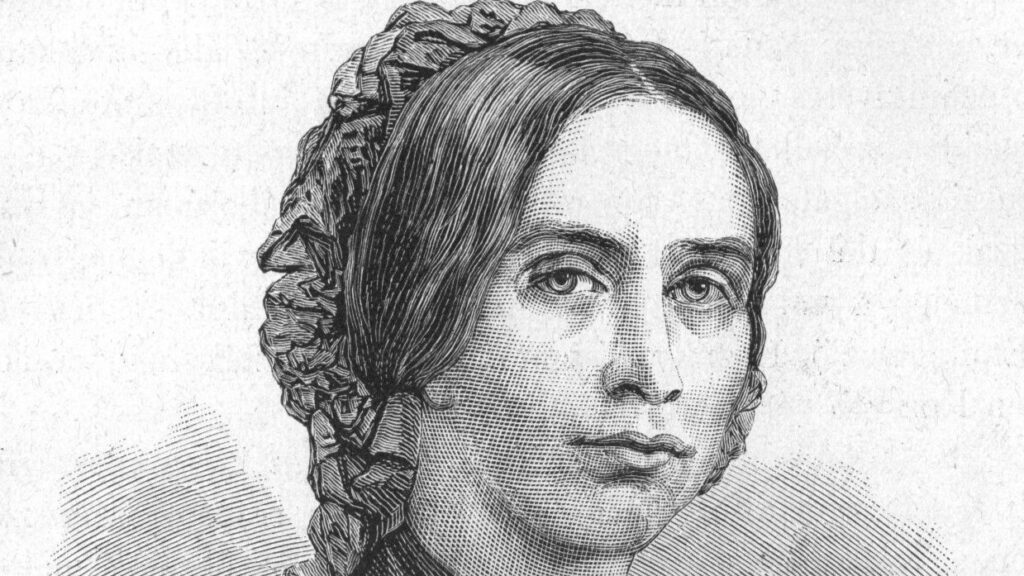
Zsuzsanna Kossuth was Lajos Kossuth’s youngest sister, who, similarly to her revolutionary leader brother, was a devoted and selfless patriot. In April 1848 she set out to establish field hospitals to provide medical aid to soldiers wounded during the freedom fight, and she also created a large network of voluntary nurses.
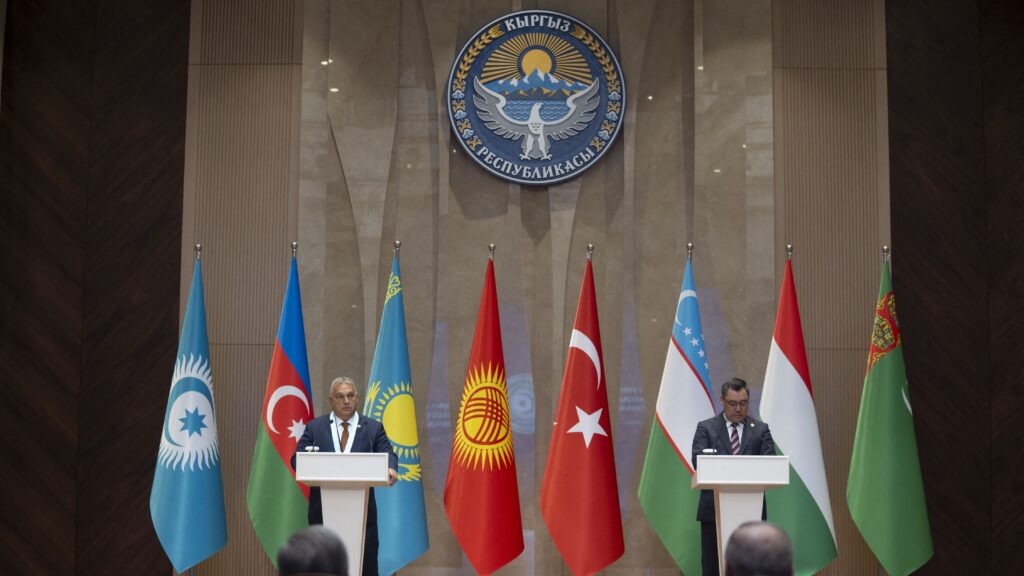
Recently Hungarian Prime Minister Viktor Orbán was awarded the Supreme Order of the Turkic World. As he highlighted in his speech, the relationship between Hungary and the Turkic nations is not a thing of the past ‘but a living relationship’. Budapest’s trade with Turkic countries having exceeded 5 billion USD testifies to that.
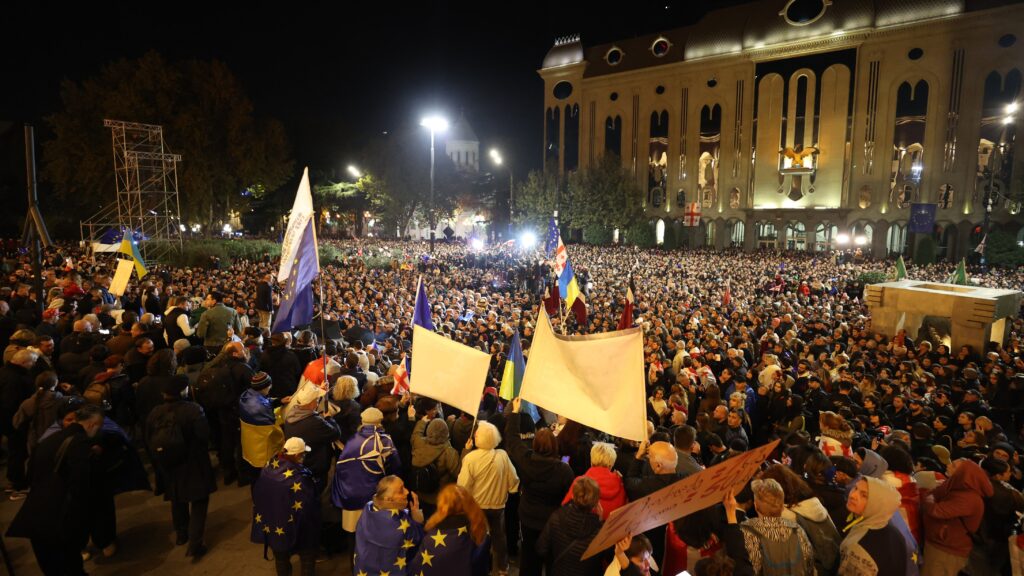
Just like in 2020 during the last election, the Georgian opposition questioned the results, denouncing the election as illegitimate, citing alleged voter fraud. To settle the dispute the Prosecutor’s Office in Georgia launched an investigation into the alleged vote-rigging. As President Salome Zourabichvili also denounced the election, the Prosecutor’s Office invited her to share any information she might have on alleged criminal acts. The President refused to cooperate with the Office, however, saying that ‘the investigative body should have found the evidence itself’.

A recent study by the Center For the Study of Democracy and the Centre for Research on Energy and Clean Air that focuses on the Czech Republic and a multinational company, Orlen Unipetrol, since 24 February 2022 Czechia has spent over 7 billion EUR on Russian oil and gas. That is, more than five times the aid it has provided to Ukraine. In 2023 the country’ reliance on Russian oil grew to 60 per cent; this year it has decreased top pre-invasion levels, but nevertheless remains around 50 per cent.
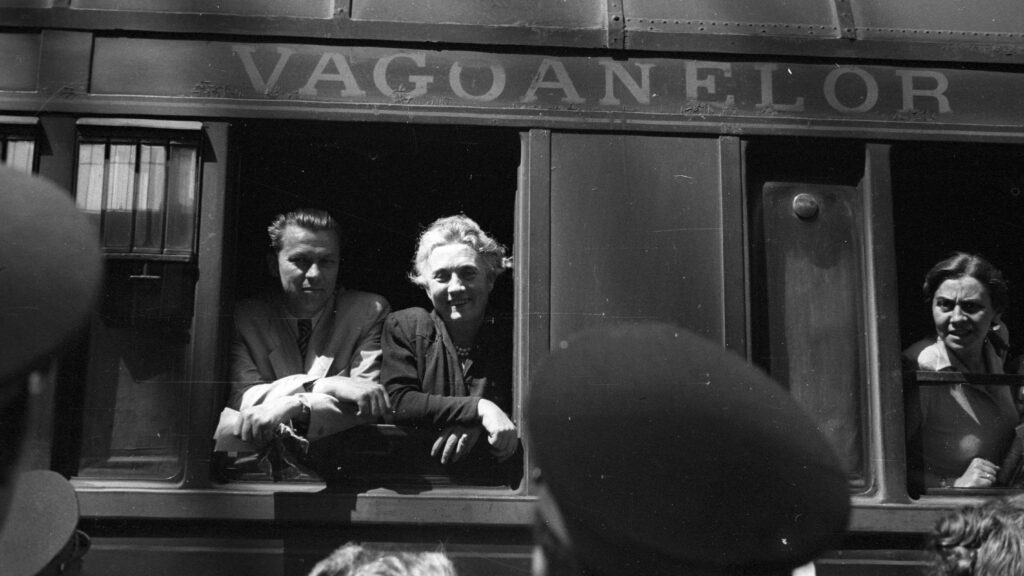
Iconic social democrat politician Anna Kéthly was the second woman to serve in the Hungarian National Assembly. Born into a working-class family, she dedicated her life to advocating for the rights of workers and women in particular. Forced into hiding during the German occupation of Hungary due to her brave anti-Nazi stance and imprisoned by the Communists in 1954, and freed in 1956, she epitomizes resistance to all forms of totalitarianism.
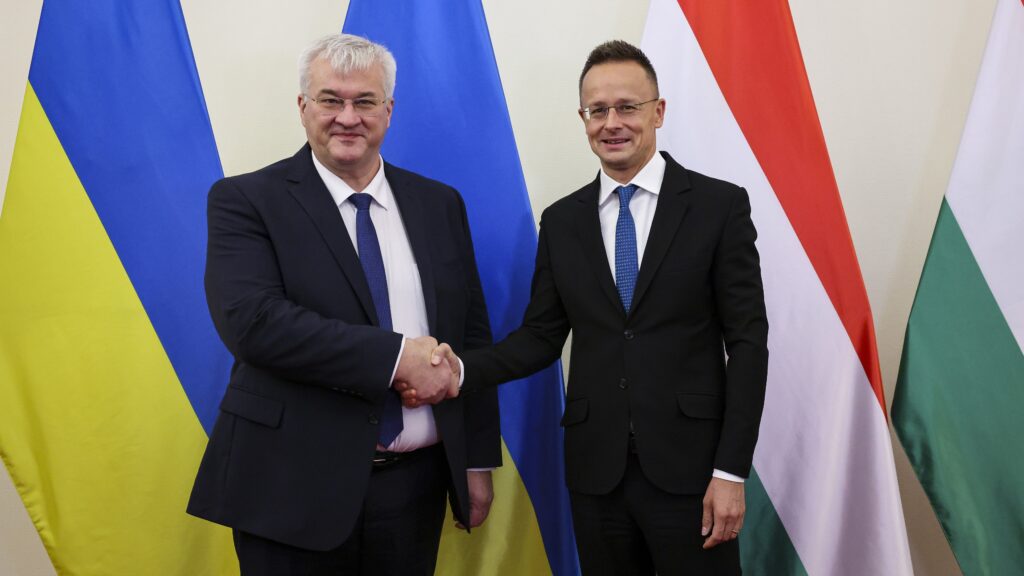
Ever since Sybiha started working in the Foreign Affairs Ministry of Ukraine there have been rumours that it was only a matter of time before he would replace Kuleba. It is widely believed that Kuleba could retain his seat from April to September only due to his good personal connections with US decision-makers—but with the presidential election preoccupying the White House, the Ukrainian leadership finally saw an opening to dispose of him.

Ukko Metsola is a top lobbyist for the Royal Caribbean Group, the world’s second-largest cruise ship company. So ironically, while Roberta Metsola, the President of the European Parliament, has been apparently making efforts to have green regulations adopted by the EP, her husband is lobbying for a global polluter. In addition, thanks to the new code of ethics she pushed through, she is not required to disclose potential conflicts of interest.
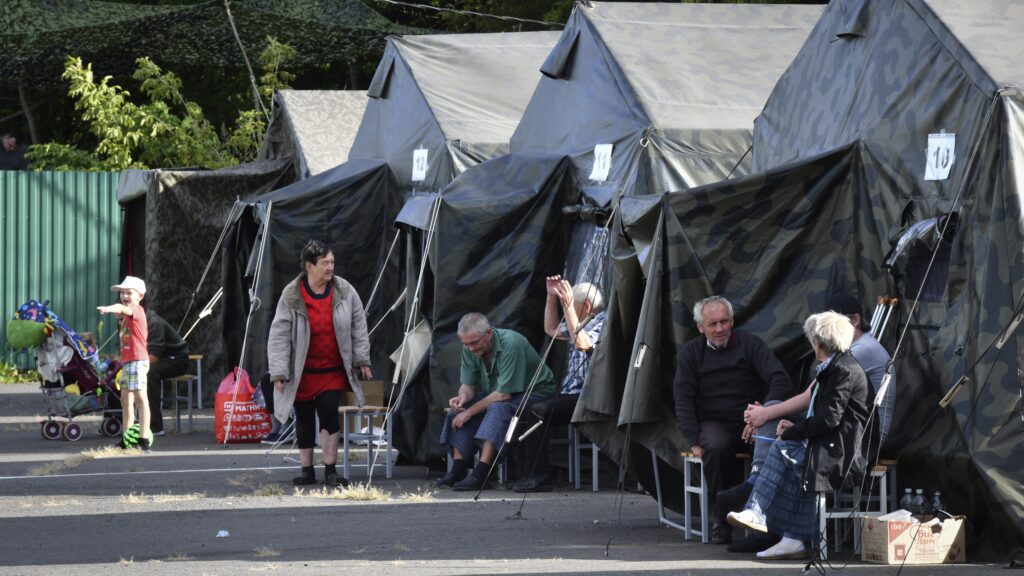
Both Ukraine’s desperate actions to bring the war to the Russian populace and the humiliation inflicted on Russia by demonstrating its inability to push Ukrainians back to behind its 1991 borders might actually signal the war is heading to an end. As neither side seems to be able to decide the outcome of the conflict with military means, the Ukrainian attempt can be interpreted as a last effort to capture more bargaining chips before the inevitable peace talks.

One of the most decorated male tennis players in the history of the game, 37-year-old Serbian Novak Djokovic has been on a gold-winning spree for the last couple of years. Be it the Australian Open, Wimbledon or any other major tennis tournament, he has performed exceptionally well. Djokovic has always highlighted the fact that the source of his unyielding determination is his Christian faith, which always gives him strength to overcome the hardest challenges on the court.
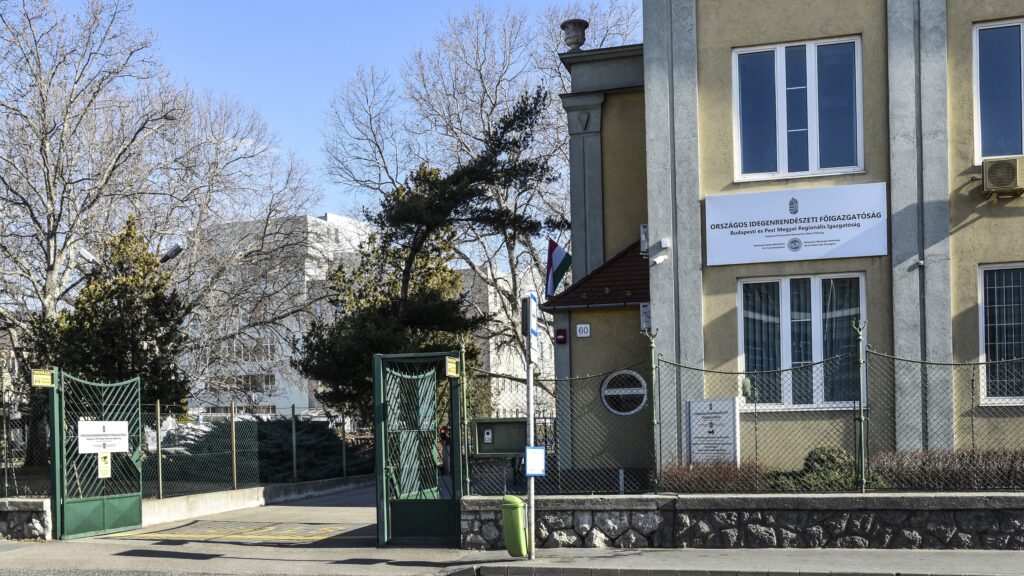
After the expansion of the so-called National Card scheme for which Russian and Belarusian nationals have now also become eligible, Budapest came under fire from Brussels politicians who claimed the measure poses a security risk to Europe. However, the conditions under which Russian nationals can enter and work in Hungary have not significantly changed with the introduction of the National Card and are comparable to the visa regimes of other European countries, which in fact allow Russians to apply for long-term visas in a much more generous way than Hungary and yet have never been pilloried for it.
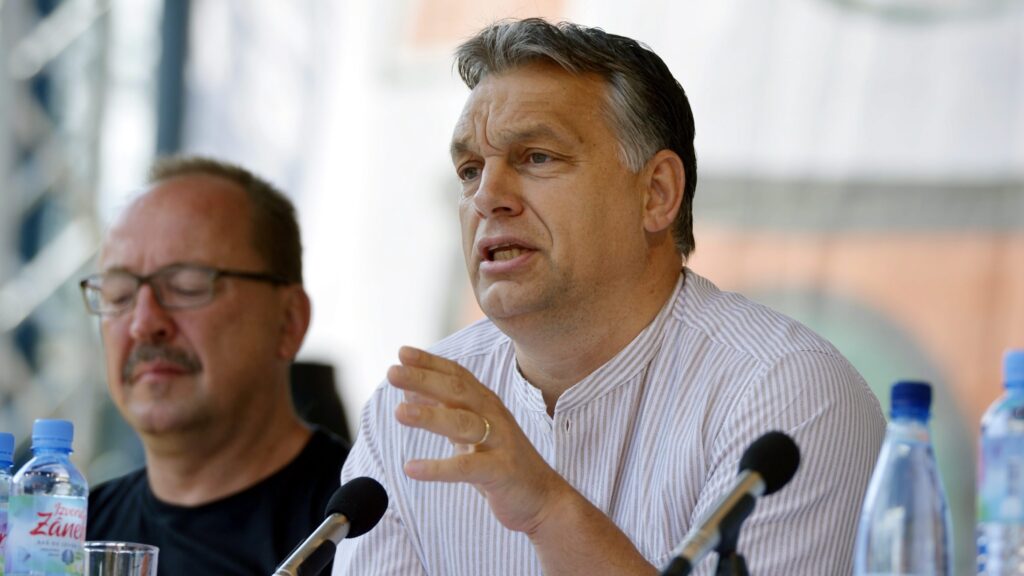
The first Tusványos speech that became famous across the Western world was delivered a decade ago in 2014. In the international, and especially Western media, the speech became (in)famous for using the phrase ‘illiberal democracy’ for the first time. Talking about competitiveness in a globalizing world Orbán said: ‘We are trying to find the form of community organisation, the new Hungarian state, which is capable of making our community competitive in the great global race for decades to come.’

Despite the series of peace plans formulated over the last years, the positions of the presidents of the warring nations, Zelenskyy and Putin still look irreconcilable. As Prime Minister Orbán highlighted on numerous occasions, however, ‘peace won’t happen of its own accord’ and ‘without dialogue it is very difficult to see how they will move in the direction of peace’.
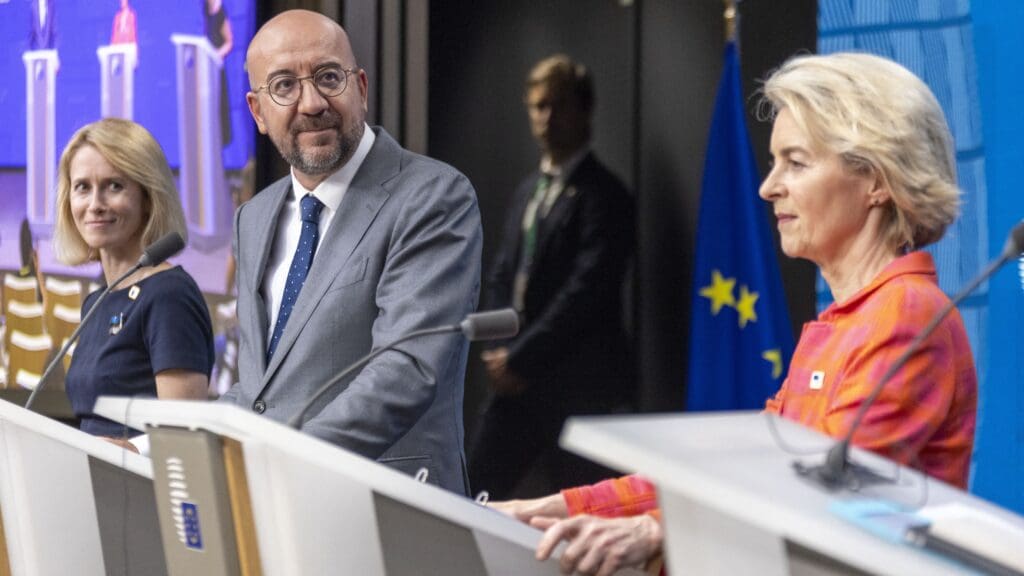
The cordon sanitaire as used by the EP today is not a reasonable political tactic to block parties that are radical beyond reasonable doubt, but a way for the political elite to block the will of the people, hollowing out the very purpose of democratic elections: to determine the political elite of the polis.

In December last year a new law created a distinct category for ‘EU minorities’ in Ukraine (such as the Hungarian and Romanian ethnic minorities) that now have access to more privileges than for instance the Russian minority. Later, as a sign of goodwill to better relations, Foreign Minister Péter Szijjártó visited Ukraine. Now, with the meeting between Orbán and Zelenskyy the two country’s relationship is officially warming up. If in the long-term Budapest does manage to considerably contribute to peace between Russia and Ukraine, as it clearly intends to, it might have a long-lasting positive impact on bilateral relations.

The recent terror attacks in Dagestan are only some of the many signs that Russia is facing a real threat in terms of radical Islam in the Caucasus. In October 2023 a crowd of Muslim fanatics besieged the Makhachkala airport in search of Jews. The antisemitic riot which led to sixty people being arrested left the airport with smashed windows and injured policemen.
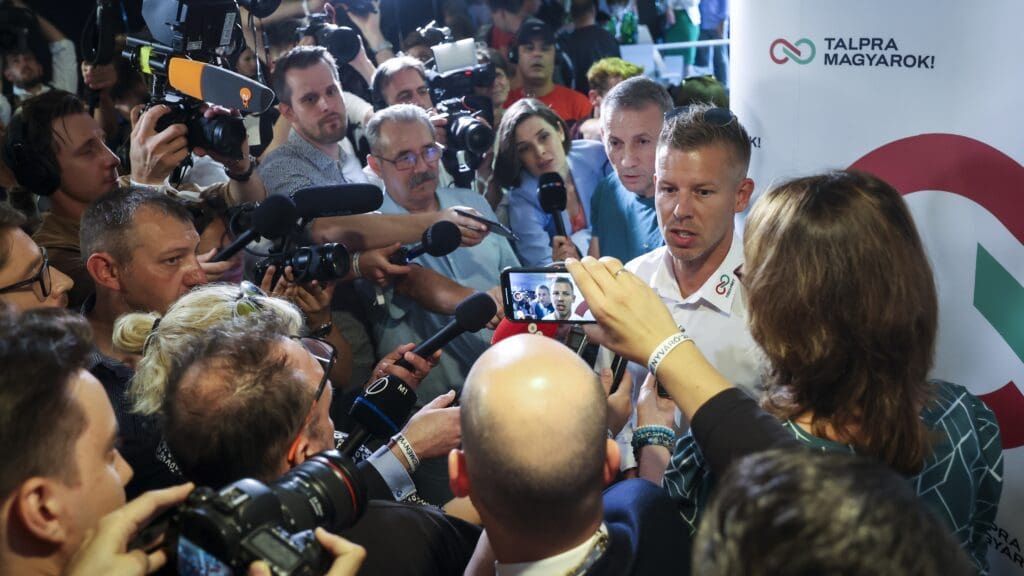
Popular anti-government actor Ervin Nagy has been named as a high-profile donor for Magyar’s demonstrations, yet some question if Nagy’s financial support is sufficient to cover the expenses of photographers, stages, audio and other electronic equipment, not to mention the honoraria of advisors and the costs of travel and accommodation. Trying to clarify the situation Magyar also cited micro-donations from ordinary Hungarians as the source of funding for his campaigns. He also promised to make his asset declaration public back in April, following a rather high-profile breakup with his ex-wife, the former Minister of Justice Judit Varga, but he has not done it so far.
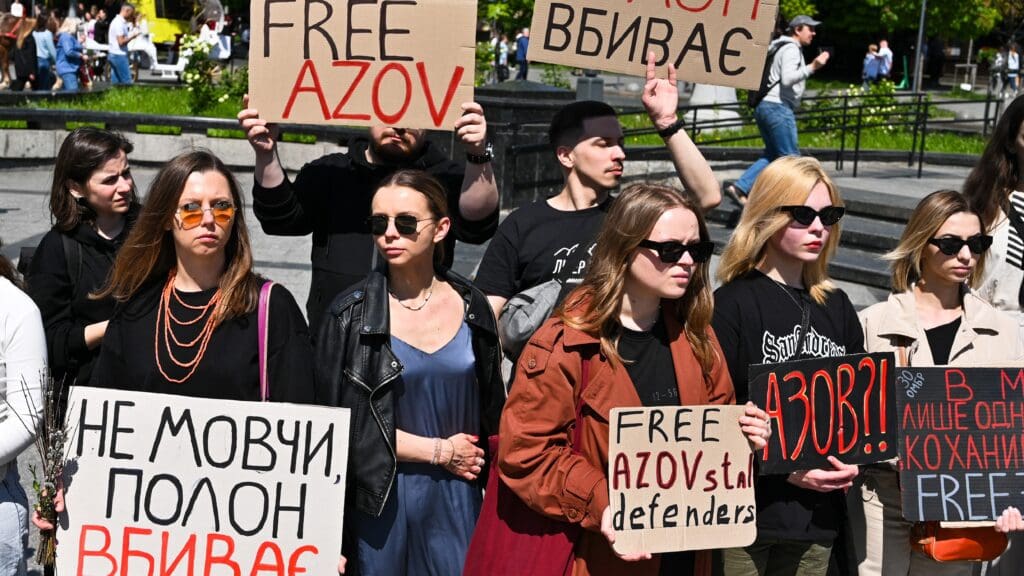
‘Else than the Azov militia, the most well-known example of radicals fighting in Ukraine is that of Denis Kapustin (also known as Denis Nikitin), the leader of the Russian Volunteer Corps (RVC), who led multiple raids into Russia from Ukraine. According to POLITICO, Kapustin is regarded as ‘one of the most influential neo-Nazi activists’ in today’s era. The praise these military formations received in the West for their reckless actions in Belgorod, without recognition of the dangers of their radical ideology, also feeds into Russian propaganda and helps it draw a parallel between the alleged past and present support the West gives to Nazis.’